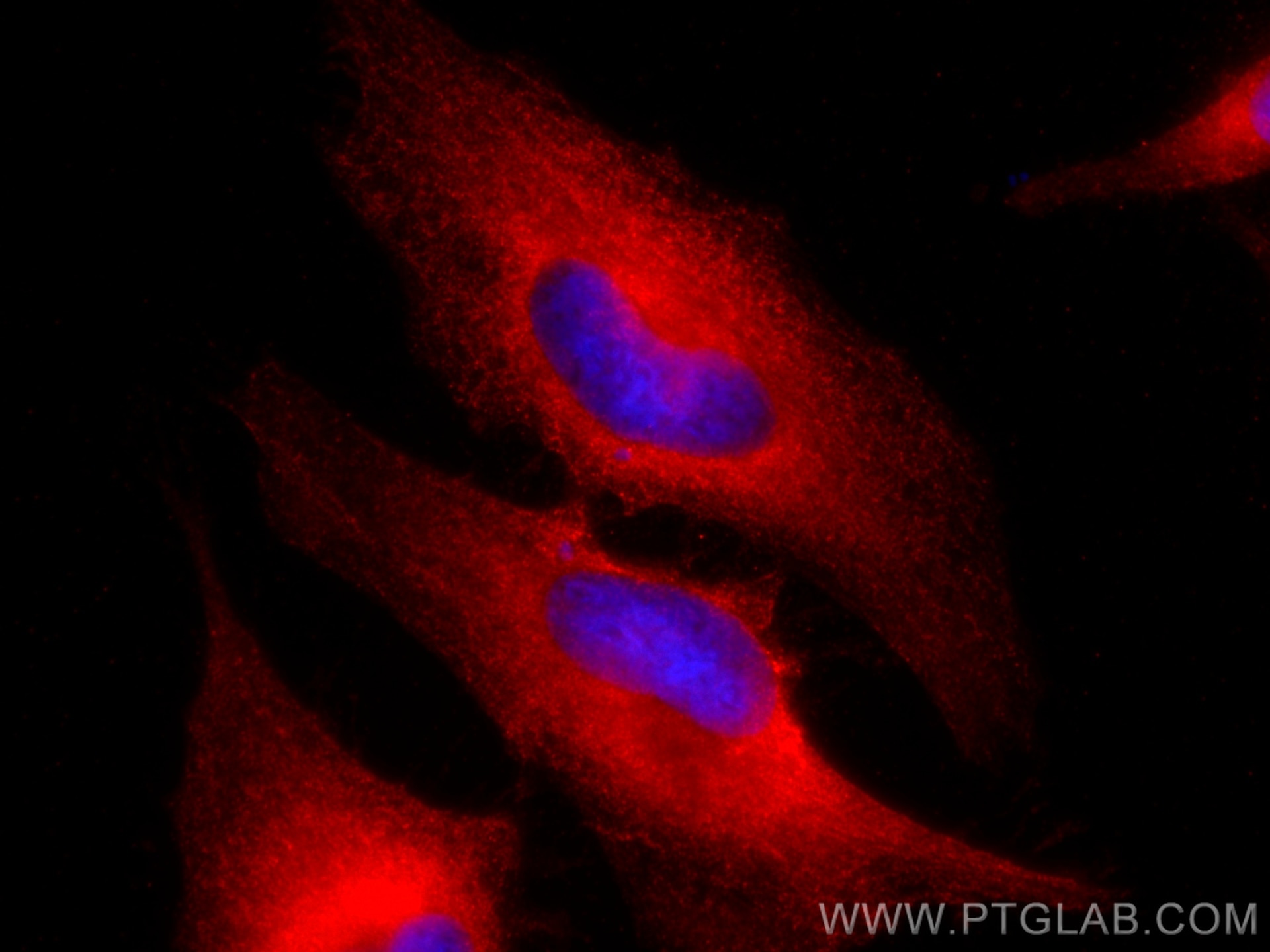- Phare
- Validé par KD/KO
Anticorps Monoclonal anti-Follistatin
Follistatin Monoclonal Antibody for IF/ICC
Hôte / Isotype
Mouse / IgG2b
Réactivité testée
Humain, souris
Applications
IF/ICC
Conjugaison
CoraLite®594 Fluorescent Dye
CloneNo.
4E9B10
N° de cat : CL594-60060
Synonymes
Galerie de données de validation
Applications testées
| Résultats positifs en IF/ICC | cellules HeLa, |
Dilution recommandée
| Application | Dilution |
|---|---|
| Immunofluorescence (IF)/ICC | IF/ICC : 1:50-1:500 |
| It is recommended that this reagent should be titrated in each testing system to obtain optimal results. | |
| Sample-dependent, check data in validation data gallery | |
Informations sur le produit
CL594-60060 cible Follistatin dans les applications de IF/ICC et montre une réactivité avec des échantillons Humain, souris
| Réactivité | Humain, souris |
| Hôte / Isotype | Mouse / IgG2b |
| Clonalité | Monoclonal |
| Type | Anticorps |
| Immunogène | Follistatin Protéine recombinante Ag0775 |
| Nom complet | follistatin |
| Masse moléculaire calculée | 33 aa, 7 kDa |
| Poids moléculaire observé | 35 kDa |
| Numéro d’acquisition GenBank | BC004107 |
| Symbole du gène | Follistatin |
| Identification du gène (NCBI) | 10468 |
| Conjugaison | CoraLite®594 Fluorescent Dye |
| Excitation/Emission maxima wavelengths | 588 nm / 604 nm |
| Forme | Liquide |
| Méthode de purification | Précipitation de l'acide caprylique-du sulfate d'ammonium |
| Tampon de stockage | PBS with 50% glycerol, 0.05% Proclin300, 0.5% BSA |
| Conditions de stockage | Stocker à -20 °C. Éviter toute exposition à la lumière. Stable pendant un an après l'expédition. L'aliquotage n'est pas nécessaire pour le stockage à -20oC Les 20ul contiennent 0,1% de BSA. |
Informations générales
Follistatin (FST) is a member of the tissue growth factor β family and is a secreted glycoprotein that antagonizes many members of the family, including activin A, growth differentiation factor11 , and myostatin. It binds activin A with high affinity and whose expression can be induced by activin A and several other pro-inflammatory cytokines. Activin A-follistatin complexes are biologically inactive and bind to cell surface heparan sulphate-containing proteoglycans for internalisation and degradation. It has also been found to play a significant role in the management of skeletal muscle size and mass. It also has important roles in early embryonic development, differentiation of ovarian granulosa cells, liver fibrosis and polycystic ovarian syndrome.
Protocole
| Product Specific Protocols | |
|---|---|
| IF protocol for CL594 Follistatin antibody CL594-60060 | Download protocol |
| Standard Protocols | |
|---|---|
| Click here to view our Standard Protocols |


